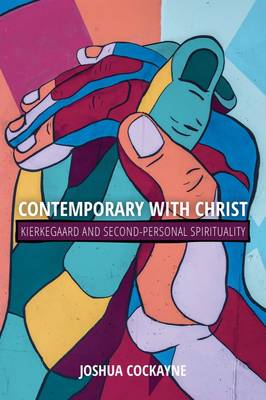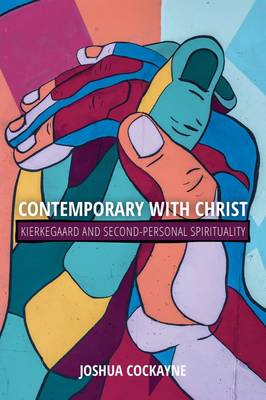
- Retrait gratuit dans votre magasin Club
- 7.000.000 titres dans notre catalogue
- Payer en toute sécurité
- Toujours un magasin près de chez vous
- Retrait gratuit dans votre magasin Club
- 7.000.0000 titres dans notre catalogue
- Payer en toute sécurité
- Toujours un magasin près de chez vous
Contemporary with Christ
Kierkegaard and Second-Personal Spirituality
Joshua CockayneDescription
The Christian life, concerned with both spirituality and doctrine, aims not at rationally defensible truth but at life-transforming love. Greater understanding of the truth will not settle the restlessness in a human spirit; only the redemptive power of relationship with God can calm the soul. The crux of Kierkegaard's presentation of Christianity is not that doctrine is unimportant, but that it is ultimately insufficient for a life lived in relationship with God.
In Contemporary with Christ, Joshua Cockayne explores the Christian spiritual life with Søren Kierkegaard (in the guise of his various pseudonyms) as his guide and analytic theology as his key tool of engagement. Cockayne contends that the Christian life is second-personal: it seeks encounter with a personal God. As Kierkegaard describes, God invites us to "live on the most intimate terms with God." Cockayne argues that this vision of Christian spirituality is deeply practical because it advocates for a certain way of acting and existing. This approach to the Christian life moves from first-reflection, whereby one acquires objective knowledge, to second-reflection, whereby one attains deeper self-understanding, which fortifies one's relationship with God.
Individuals encounter Christ through traditional practices: prayer, the Eucharist, and the reading of Scripture. However, experiences of suffering and mortality that mirror Christ's own passion also enliven this life of encounter. Spiritual progress comes through a reorientation of one's will, desire, and self-knowledge. Such progress must ultimately serve the goal of drawing close to God through Christ's presence. Engaging philosophy, theology, and psychology, Cockayne invites us to join in a conversation with Kierkegaard and explore how the spiritual disciplines provide opportunities for relationship with God by becoming contemporary with Christ.
Spécifications
Parties prenantes
- Auteur(s) :
- Editeur:
Contenu
- Nombre de pages :
- 280
- Langue:
- Anglais
Caractéristiques
- EAN:
- 9781481310871
- Date de parution :
- 15-07-20
- Format:
- Livre relié
- Format numérique:
- Genaaid
- Dimensions :
- 162 mm x 232 mm
- Poids :
- 589 g

Les avis
Nous publions uniquement les avis qui respectent les conditions requises. Consultez nos conditions pour les avis.






